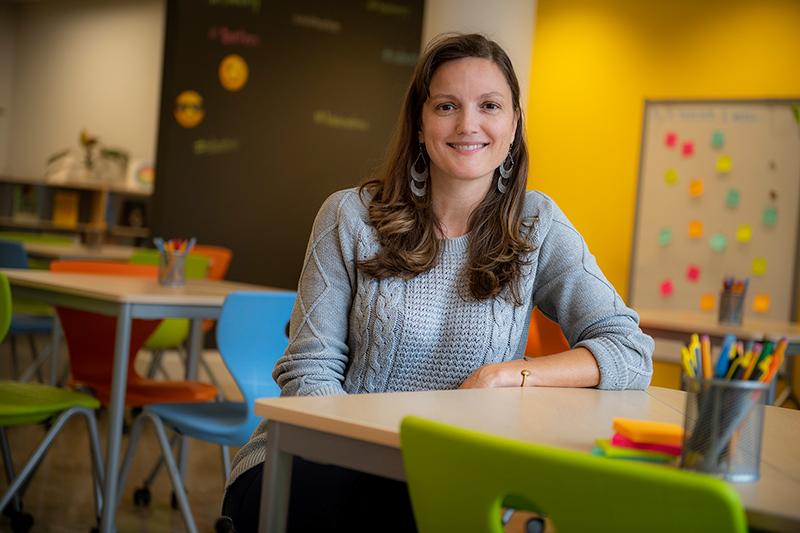New Tulane initiative, AfterClass, aims to support local educators
A new initiative founded by a Tulane University professor, along with a team of faculty and staff, aims to provide support to local educators in and around New Orleans, while elevating the profession of teaching.
AfterClass is a community space where local teachers can receive professional, emotional and social support, while collaborating with colleagues as well as educational and community organizations. The space is located in the Taylor Education Center, a newly renovated four-story warehouse in the Central Business District that is home to other organizations and startups related to education, design and innovation, such as Electric Girls, Enriched Schools, Project Peaceful Warriors, and the Taylor Warehouse, the second location of The Phyllis M. Taylor Center for Social Innovation and Design Thinking, as well as, a maker’s space, The New Curiosity Shop and a reception/meeting venue, Pavilion for Tomorrow.
Shannon Blady, PhD, a professor and former director of the Teacher Preparation and Certification Program (TPCP) at Tulane, is executive director of AfterClass. She noticed a theme among teachers and also her students in TPCP.
“We’re giving them articles from NPR that say things like, ‘It’s OK to cry in your car,’” Blady said of ways teachers deal with stress of the profession. “We need to change this narrative.”
Before teaching at Tulane, Blady was an elementary, middle, and high school teacher for over 15 years, including her first years as a teacher in New Orleans Public Schools and most recently in a local charter school. She understands firsthand the demands and responsibilities of our teachers.
“I believe that certain teachers will impact you for the rest of your life and they can’t impact you positively if they’re stressed and not in a good mood and not healthy.”
Blady also serves as the Paul Tudor Jones II Professor of Social Innovation and Social Entrepreneurship at the Taylor Center, and through her involvement in this role, she realized that she wanted to use that support to focus on the needs of teachers. In collaboration with Brooke Grant, another TPCP professor; Desi Richter, instructor in Curriculum and Instruction and Special Education at the University of New Orleans; and Monique Hodges, associate director of Finance and Operations for Newcomb-Tulane College, Blady wrote a proposal for what would eventually become AfterClass. Phyllis M. Taylor, chairman and president of the Patrick F. Taylor Foundation, emeritus member of the Tulane board and Tulane Law alumna, was very interested in the concept and has supported the initiative with a generous gift. AfterCLASS operates under the overall umbrella of the Phyllis Taylor Center at Tulane University.
The team conducted a survey to find out local teachers’ greatest needs. After receiving responses, the team set out to design the center and plan programming.
AfterClass provides teachers with a slew of resources including professional development sessions led by other teachers, a library of educational titles and books on social and emotional learning, a resource room with printers, a laminator, and other classroom supplies along with coffee, tea and healthy snacks. The center also offers discussions on local educational issues, collaborative lesson planning sessions, and Sunday morning yoga.
Blady said AfterClass is a way for teachers to invest in themselves and their careers while surrounded by like-minded individuals.
“No one can speak your language like another teacher can,” Blady said. “Get help for that issue that’s driving you crazy and maybe it’s you don’t know how to talk to a parent or the administration, or a lesson just didn’t go right.”
Blady says the center also plans to hold annual conferences focused on teachers’ needs and that provide opportunities for other organizations in the city who are working with children or teachers to share their work and resources.
She credits the methods of the Taylor Center for Social Innovation and Design Thinking for tackling such a great need in the community.
“I think often times when people do work to help a certain population, they forget the design-thinking process, the human-centered process, which is how we started,” she said. “Giving voice to the teachers is our mission so you start with the voice of the teachers.”
For more information about AfterClass, click here.


